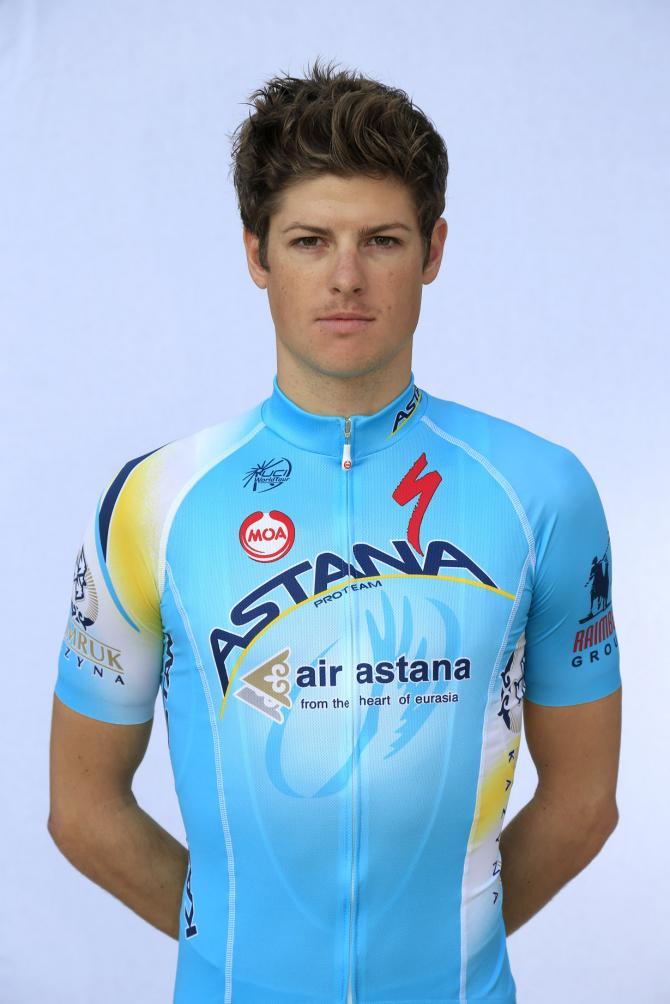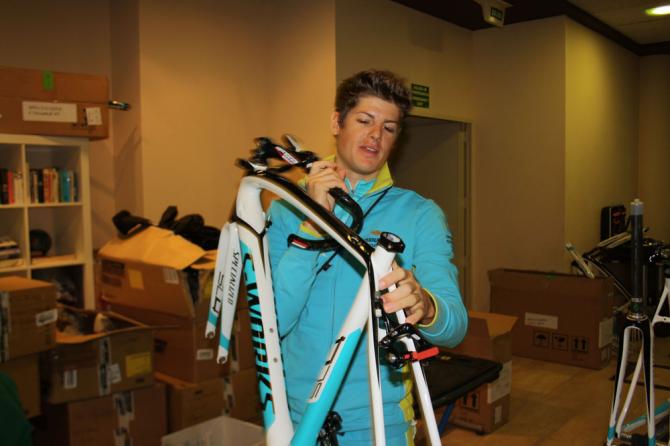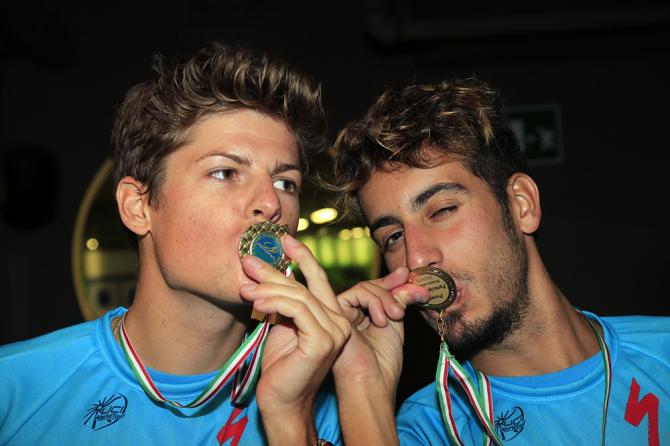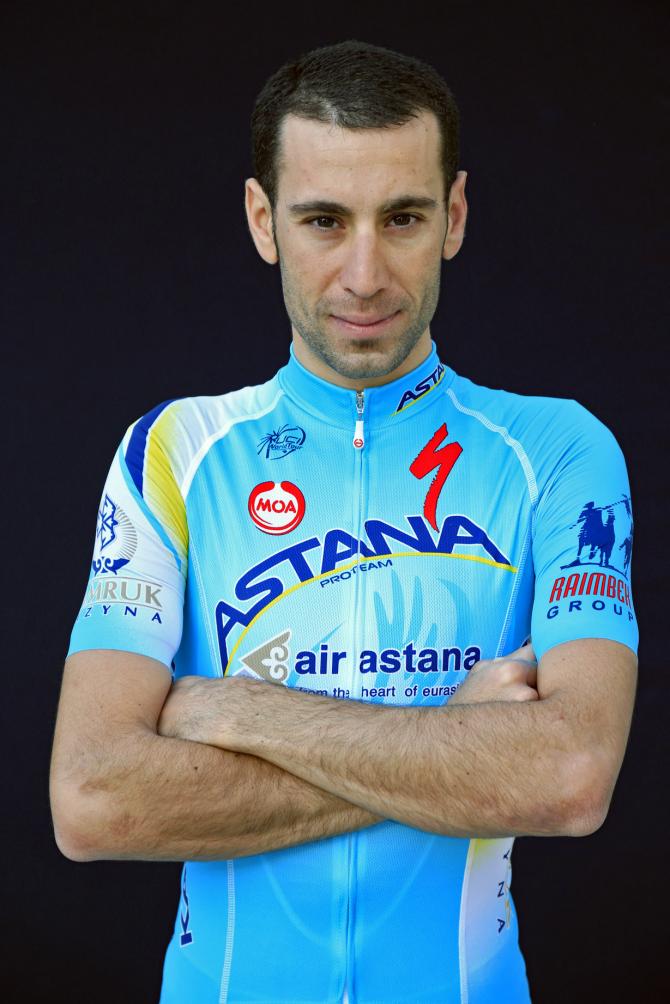Q&A: Jakob Fuglsang on Bruyneel, Riis, Nibali and the Tour de France plan
Astana all-rounder ready to support team in July





This year was always going to be a crucial season for Danish rider Jakob Fuglsang. Having broken free from the clutches of RadioShack he was handed the chance to prove his mettle at the Tour de France. He duly delivered with a solid seventh overall in Paris. Next year, with teammate Vincenzo Nibali leading the line in the race of the maillot jaune, Fuglsang has thrown his support in behind his captain.
The new season will bring a host of new challenges as the Dane hopes to help Astana win their first Tour title since 2009 and in this exclusive interview with Cyclingnews Fuglsang talks not just about the Tour de France but his thoughts on doping and the predicaments two of his former managers, Johan Bruyneel and Bjarne Riis, find themselves in.
Cyclingnews: How would you assess your 2013 season?
Jakob Fuglsang: It was a good year for me. Personally I would say that it was my best so far. I didn’t win as much as in other years, in the end I only won a TTT with the team in the Vuelta, but it was definitely a good year.
CN: How would you assess the Tour ride in the context of your career, because a lot of people thought that this was your chance to prove yourself after not having a fair shot at your previous team.
JF: My goal was top ten going into the Tour. I believed that it was possible. It might be that I have to be in a breakaway that rides away with ten minutes but in the end that wasn’t the case. I was strong enough to stay with the top ten guys and my position was pretty much a sign of where I was in terms of the Tour. So I was happy with the results and happy that I proved to myself, because it gave me a lot of confidence and morale for the future.
CN: Do you think you proved a few people wrong?
Get The Leadout Newsletter
The latest race content, interviews, features, reviews and expert buying guides, direct to your inbox!
JF: For sure in Denmark where there are a lot of people that I proved were wrong. If you see how much Danish press we have at the Tour it’s incredible for such a small country. I think I’ve had my critics there and a lot of them I got to shut up. That’s not the reason why I want to do it but it’s nice when they’re a little more quiet.
CN: Are you talking about the media specifically?
JF: Not so much. It’s more the people writing on blogs here and there. They’ve not had the trust in me and didn’t believe that I could do it. I think some felt that I was a spoilt little kid who was riding on big teams. They didn’t see where my results were. I think I had some big results. Maybe I don’t have many big stage victories but I’m the only Danish rider wining stage races, smaller ones but still….I think I deserve a little trust and credit.
CN: When it comes to the Tour and you’re heading into the race do you look through the complete line up and pick out names and think ‘he’s top ten, he’s top five, he’s top 15 and I can beat him’?
JF: Of course you look at the other riders and think, yes I can beat him, him I might have troubles with, but in the end my goal was set. I could easily point out ten guys who would be stronger than me and who could be difficult for me. Then I wouldn’t be in the top ten. But I didn’t focus too much on that. You have to see how each one is doing because there’s a lot of potential but you never know until the race is over.
CN: And you also almost came away with a stage win.
JF: That would have been good to have in my pocket. There was that stage and then another in the Dauphine when I was beaten by Sanchez. One of them at least I would have liked to have changed for a victory.
CN: And next year, what is the plan?
JF: The plan is that I do the Tour again but in the service of Vincenzo. I’ll build up for the first part of the season with a focus in the first part of the season on winning stages. So not so much about top fives overall but going for stage wins instead. That will make me improve as a rider and bring me forward. If I could have one, one of the big chances I had at the Tour or Dauphine that would have been nice, but in the last five years I’ve been chasing overall places. So for half a season at least I’ll try and learn to win stages.
CN: Will you target a GC position in a Grand Tour at all in 2014?
JF: I don’t know. Right now it’s not planned. I have to help Vincenzo in the Tour but I also hope that if the team is good, if he’s good and everything comes together then I can also try and do GC in the Tour but of course the main goal is to help Vincenzo. I will support him 100 percent and I know that if we want to beat Sky we need to come with the best team we can. They’ve selected me for that and I’m ready to be there to help.
CN: Do you feel that this year’s Tour was a stepping stone because usually the next step is for a rider to go back to that race and try and go one stage further? Understandably with Nibali, who has won the Giro and been on the Tour podium, but are you comfortable with that situation?
JF: In the end I am. I knew it was a big chance to do the Tour this year. I didn’t expect that to carry on year after year. Vincenzo won the Giro and he also has to move on. From the results it’s clear that he’s a stronger rider, and to try and win and beat Froome, Sky, whoever, we need to be there with the strongest team and ride for the strongest rider. It’s logical that he’s doing the Tour now. Of course if I could select whatever I wanted then maybe I would chose the Giro as the captain and try and go for a top five or top three and then go and help in the Tour. But the team want me 100 percent for the Tour and I understand them. I’m good with that and for me it’s also the right thing to do.
CN: Is that advantage for Astana, because if you draw a comparison with Sky, let's say, Richie Porte is going to the Giro and will then do the Tour? Are you that last rider for Nibali in the sense that Porte is the last man for Froome and therefore that’s where the thought process is coming from in term of making you focus 100 percent on the Tour?
JF: It’s difficult to say but for example this year I did the Tour and the Vuelta after and for sure I wasn’t the same guy after the Tour. I won't say the Tour is harder than the Giro but for me it wasn’t easy to be 100 percent in one race and then come to a second Grand Tour right after and perform there. In that sense I would say we’re in a better situation than Sky but let's see when we get there.
CN: Nine best riders from Sky, and the nine best riders from Astana, who do you think has the strongest unit?
JF: I think for the upcoming Tour I would say Astana.
CN: Based on?
JF: Our captain Vincenzo, the stages with the cobbles, not so many TT kilometres, and no team time trial. We won the TTT in the Vuelta and they won it in the Giro but all in all I think we have the stronger team. If they split up the team, like they did this year, we saw there were days when things fell apart and they’re not unbeatable.
CN: We’ve seen how they ride in a number of stages races, where are their weaknesses? Where can teams like Astana, like Tinkoff exploit their weaknesses?
JF: It’s hard to say exactly where but we saw this year that they were trying to play Superman on stage 9 in the Tour and that didn’t work. Maybe we have a few more road captains. I don’t know who their road captain was this year but I think they made some mistakes this year and from the years before someone like Eisel or Knees was controlling the team. That’s maybe where they have a weak point. They have some really strong guys but also young guys.
CN: Changing direction but where do you think the Schlecks are in terms of their Tour ambitions? You know them from your time at Saxo Bank and RadioShack and we spoke to them a few days ago and they think they can come back to the level of 2011. Do you think they can?
JF: I don’t know. For Andy there’s still a good piece of the way to go. He was in the Tour last year and couldn’t live up to the expectations. It’s going to be difficult for him this year but that talent doesn’t just go away. For sure he has to work to harder than he did last year. With Frank back it might change something and it might give him motivation. Frank will be ready. The question is whether he can keep it going since he’s been training all year. He’ll be motivated to start well in Australia.
CN: Was Andy not working as hard as he could?
JF: I don’t think so but that’s what I think. It’s been a difficult couple of years for him and I think that he can give more than he has but it’s difficult for me to say as I don’t know how he feels inside or how his body is reacting. It took a long time for him to get back on the bike and maybe he’s paying the price for such a long time off. He maybe never really got into shape in 2012.
CN: A couple of your former team bosses have been in the news over the last few weeks. Starting with Bjarne Riis who has sold his squad to Oleg Tinkov and then there’s the Danish doping investigation. What do you make of Riis’ situation?
JF: I think it’s a pity for Danish cycling that he sold the team. On the other hand it might be good for cycling that there’s one more team that is as ‘safe’ as it can be in this world. It might have been a good move for Bjarne if they want to and really have the evidence to suspend him. That’s what I’ve heard. I’ve not followed it so much.
CN: What do make of the aspect of investigating the past?
JF: On the one had you have to set a deadline on how far back you want to go. On the other hand it’s important that you show to riders that if you cheat now we might not catch you immediately but that we’ll come back for you whenever we can. If that keeps guys from cheating, that’s a positive thing. On the other hand it does keep damaging the sport that we keep talking about old stuff and don’t move on. The teams, the riders, the UCI, we do a lot for a clean sport now. I won’t say it’s the cleanest sport in the world but I think it’s one of the most tested. We should get some credit for that and the team and organisations should try and look forward.
CN: Moving to Johan Bruyneel because he’s facing a lifetime ban. Do you think he should be out of the sport?
JF: If you talk about Johan in person I don’t mind him. I don’t have to see him back in the sport again. One way or the other if you have organised doping like you had on US Postal then for sure it shouldn’t just be the riders who pay the price but also the managers. If that turns out to be the same with Bjarne he might also have to take his penalty and that might also be the right thing. For Johan, if that’s the case then that’s how it is. Maybe it’s what’s needed for the sport to move on and clean up the past. It’s just hard and a pain in the ass that you have to hear the same stories.
CN: What do you think the sport should do then? Should we not ask you questions on Bruyneel or Riis? What do you think the solution is?
JF: I don’t think I have the answer but it’s not just the press it’s also the riders who were riding ten, fifteen years ago who want to come out and say they were cheating in 1995. What’s that going to bring us now? Are they just trying to be in spotlight and sell books? What’s their motives? It’s not just the press and I don’t have all the solutions but I would like to get rid of all the doping, of all the stories but I also want to have a clean sport so if that’s what it takes then that’s how it has to be. I just hope it does end soon and that we can have the image of sport people can trust and that people don’t just think all bike riders dope and that sponsors want to market us so we can keep having a sport.
CN: So based off what you know, and I don’t know if you read the USADA report...
JF: No…
CN: Do you think that Johan Bruyneel should be allowed back in?
JF: In the end not.
CN: No?
JF: If he takes a penalty and then he comes back then maybe he should be allowed back but if I was sponsor I would not give my money to him. I’d give it to someone else.
CN: But you think he should pay a penalty, whether it’s two, four year or life?
JF: I think that would send the right signal.
Daniel Benson was the Editor in Chief at Cyclingnews.com between 2008 and 2022. Based in the UK, he joined the Cyclingnews team in 2008 as the site's first UK-based Managing Editor. In that time, he reported on over a dozen editions of the Tour de France, several World Championships, the Tour Down Under, Spring Classics, and the London 2012 Olympic Games. With the help of the excellent editorial team, he ran the coverage on Cyclingnews and has interviewed leading figures in the sport including UCI Presidents and Tour de France winners.
